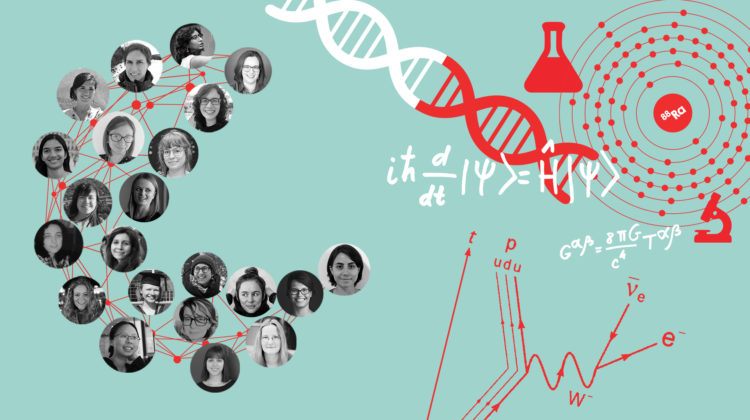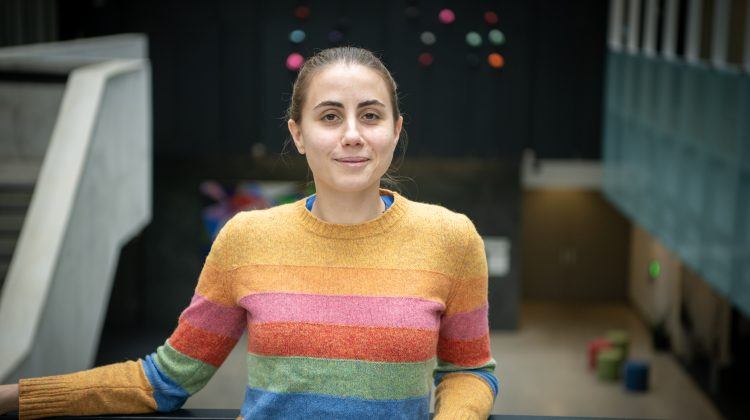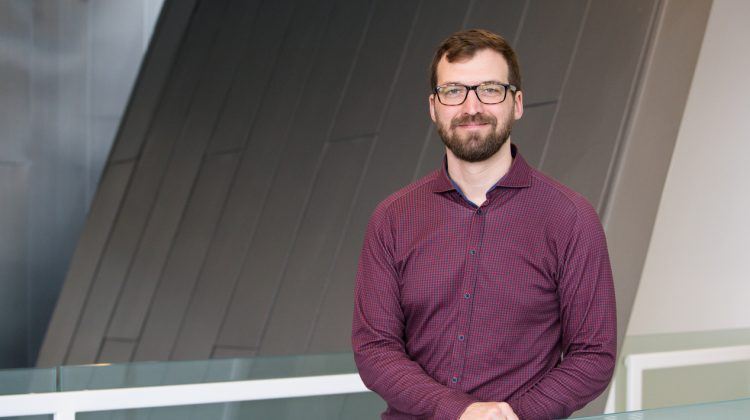Perimeter Scholars International class of 2023 celebrates collective achievement
Students from 17 countries graduate from a unique, intense master’s program in theoretical physics

After 10 months of complex mathematical scribbling on blackboards, the part of the equation that made Perimeter Institute special for this year’s master’s graduates was simple. It was all about the people.
“It really was amazing to go from walking into Perimeter Institute for the first time and seeing an alien language sprawled across the blackboards to seeing us become the ones drawing the crazy diagrams all over the building,” said Cole Coughlin, one of the student speakers at the graduation ceremony for the 2023 Perimeter Scholars International (PSI) cohort.
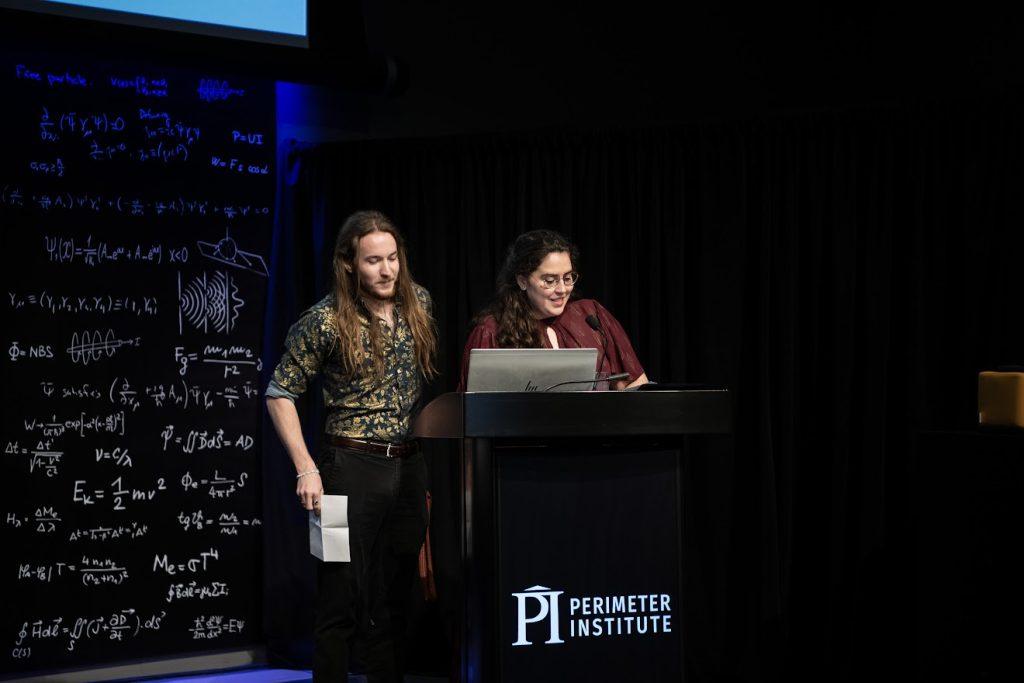
“We got to find out just how far we could push ourselves to learn and accomplish in only 10 months, and it was only possible because we didn’t do it alone,” added Coughlin, a Canadian student who is staying at Perimeter to do his PhD next year.
Perimeter’s unique and intense one-year-long PSI master’s program, “is designed to show us what science can be, and in my opinion how it should be – collaborative,” he added.
The 25 students who graduated – and two others staying for a second year as part of a PSI internship program – were selected from 600 applicants around the world. They are the best of the best. They came from 17 countries around the world.
Raquel Izquierdo Garcia, a student from Spain and winner of this year’s Marsland Family PSI Award, said that from the very first night in the dorm rooms when they entered the PSI program, the students were learning about themselves and each other.
The group introduced themselves by talking about their physics interests – such as Is time emergent? – she said. “But quickly we also started discovering many exciting things about each other. We were discussing jazz, poetry in different languages, dances that we could try to learn, possible hikes for the year,” added Izquierdo Garcia, who is also staying at Perimeter for her PhD.
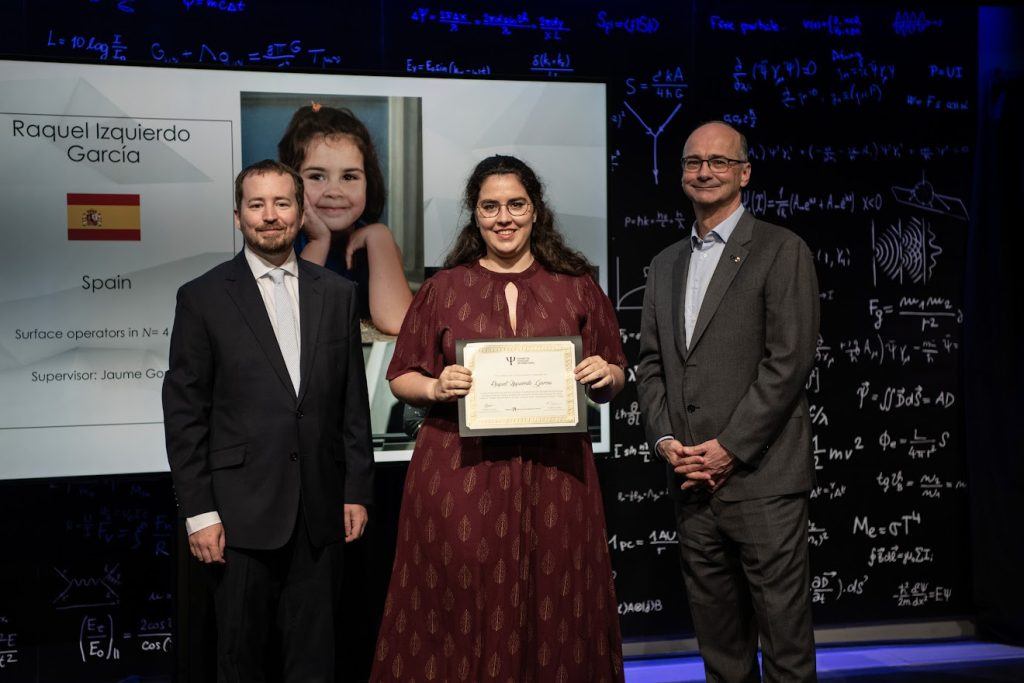
“PSI has changed my life, and not only my academic life. That is because of how thoughtfully crafted this program was, and how much of ourselves we put into it during these 10 months,” said Izquierdo Garcia.
The program is designed by and run at Perimeter, but the graduates are awarded degrees through the University of Waterloo.
Jan Kycia, a professor and associate chair for graduate studies at the University of Waterloo’s Department of Physics and Astronomy, said the program at Perimeter has an excellent format that provides flexibility to students who are learning different topics under top researchers in those fields. It gives the students a chance to dive into the various subfields of theoretical physics before deciding what they will specialize in.
“What’s very important is that you respect what interests you and give those things a chance, because that’s how you will have some really excellent achievements in the future,” Kycia said.
Lucien Hardy, a Perimeter faculty member who gave the keynote address, said theoretical physics is a “strange project,” one more than matched by the strangeness of the physical world we live in.
“Some of you even took a course in quantum foundations and learned about philosophical zombies in the many worlds interpretation. You did a winter project and wrote cutting-edge essays. For you, these have not been ordinary days,” Hardy said.
He offered advice to the graduates, based on his long experience as a theoretical physicist. The first was to believe in themselves. “Your superpower is your fresh outlook,” Hardy said. “Find your own compass and then be guided by it.”
He then urged them to pursue bold new ideas, to continue connecting with like-minded people around the world, and to write papers. But finally, he said, “Have fun, and if you are not having fun, change something so you are.”
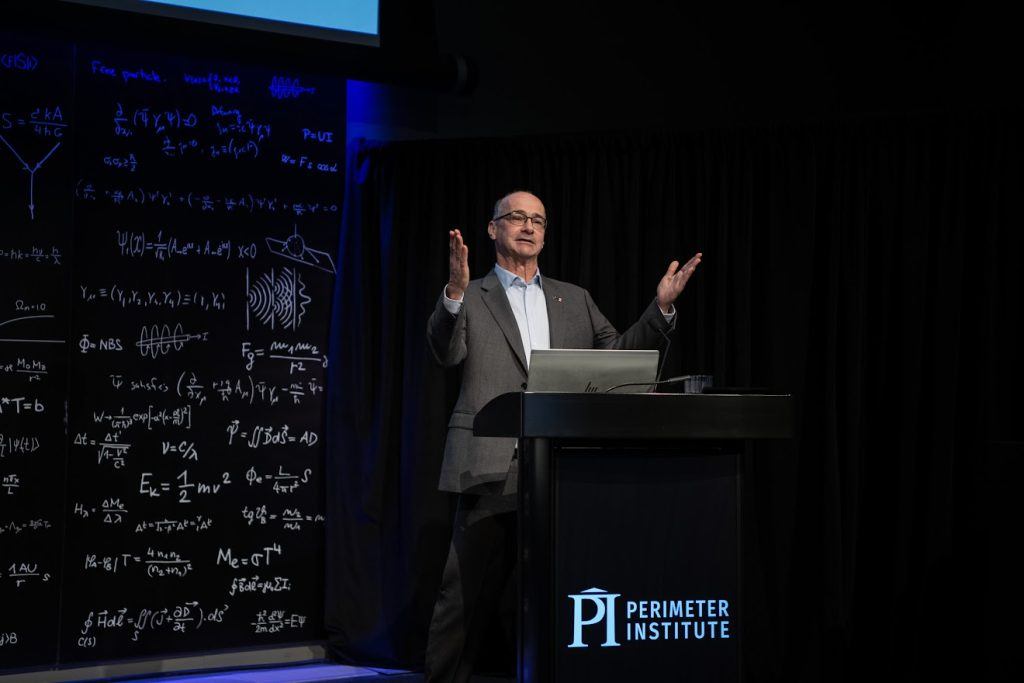
Perimeter Director Robert Myers also congratulated the PSI graduates.
“You have crossed the full breadth of modern theoretical physics in less than a year. From the smallest structures at the Planck scale of quantum spacetime, to the cosmic web spread across the cosmos, you have taken on relativity, quantum field theory, condensed matter theory, statistical mechanics. You have taken deep dives into cosmology, particle physics, string theory, and quantum information. What an incredible journey. What an epic, mind-bending adventure,” Myers said.
Myers said the students pulled each other along, filling in each other’s gaps and encouraging one another. That is the way science works – through the interactions of people working together as a community, he added.
“In fact, maybe that’s the most important thing PSI has given you: Trust in each other, and the magic that you can accomplish when you work together as colleagues.”
The graduates of 2023 are now part of a community of 1,000 other young researchers who have been trained through the PSI program, he added. Some are now researchers in theoretical physics, others have formed companies, yet others have branched out into wider areas, such as biomedical research.
“They, and you, are the future, and the best measure of our success here at Perimeter,” Myers said.





















































































